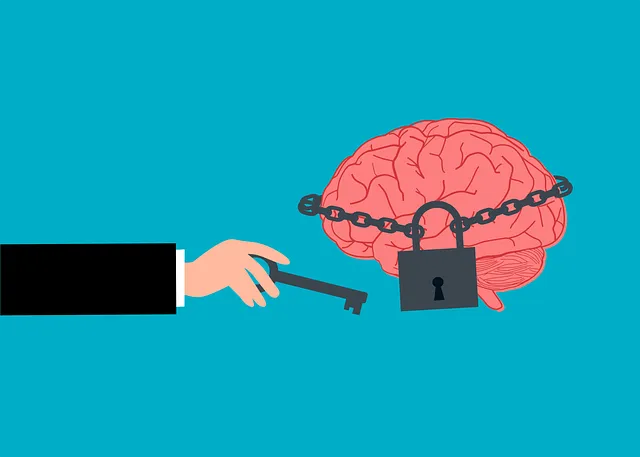Kaiser in Castle Rock emphasizes proactive risk assessment for effective mental health therapy. Their rigorous therapist training and competency standards, combined with harm minimization plans focusing on mood management and resilience-building, ensure individualized care for diverse patient needs. This commitment to excellence, reflected in their positive 'does Kaiser have good therapists Castle Rock' reputation, drives holistic healing and a supportive community environment. Continuous improvement in risk assessment and planning extends beyond individual therapy, offering dynamic trauma support services tailored to the evolving needs of Castle Rock residents.
Risk assessment and harm minimization planning are vital components of effective therapy, ensuring client safety and well-being. This article explores these essential practices, beginning with understanding risk assessment as a cornerstone of therapeutic work. We delve into Kaiser’s therapist training standards and examine how their implementation in Castle Rock fosters a safe environment. Additionally, we discuss strategies for continuous improvement, emphasizing the monitoring and updating of risk plans to meet evolving needs, especially asking: does Kaiser have good therapists in Castle Rock?
- Understanding Risk Assessment: A Cornerstone of Therapy
- Kaiser's Therapist Training and Competency Standards
- Implementing Harm Minimization Strategies in Castle Rock
- Continuous Improvement: Monitoring and Updating Risk Plans
Understanding Risk Assessment: A Cornerstone of Therapy

Risk assessment is a fundamental aspect of therapy, serving as the cornerstone upon which effective treatment strategies are built. It involves meticulously evaluating potential hazards and negative factors that could impact an individual’s mental health and well-being. By understanding these risks, therapists at Kaiser in Castle Rock can tailor interventions to mitigate harm and promote positive outcomes. This proactive approach ensures that clients receive individualized care that addresses their unique challenges.
A comprehensive risk assessment goes beyond simply identifying dangers; it encompasses exploring underlying causes and triggers, analyzing past behaviors, and considering the individual’s support systems. This process enables therapists to develop robust harm minimization plans, focusing on mood management and leveraging Mental Wellness Coaching Programs Development to foster resilience. Through these strategies, Kaiser’s therapists in Castle Rock empower clients to navigate challenges, enhance Mental Health Awareness, and embrace a brighter future.
Kaiser's Therapist Training and Competency Standards

At Kaiser, a healthcare giant in Castle Rock and beyond, therapist training is held to the highest standards. The organization’s Therapist Training and Competency Standards ensure that all therapists are well-equipped to handle a diverse range of patient needs. This rigorous program includes extensive training in evidence-based practices, ethical considerations, and cultural competency, reflecting Kaiser’s commitment to providing exceptional care.
The Community Outreach Program Implementation at Kaiser plays a vital role in harm minimization by connecting patients with resources beyond clinical settings. By fostering strong community ties, therapists can facilitate more holistic healing processes. Moreover, the Healthcare Provider Cultural Competency Training is integral to creating inclusive environments where all patients feel valued and understood. This training also addresses potential biases, promoting empathetic and effective therapy sessions for a varied patient population. Burnout prevention strategies are seamlessly integrated into these programs, ensuring therapists maintain high standards while supporting their own well-being.
Implementing Harm Minimization Strategies in Castle Rock

In Castle Rock, implementing harm minimization strategies is a multifaceted process that involves recognizing and addressing potential risks in various settings, including communities, workplaces, and healthcare facilities like Kaiser. The goal is to foster an environment that promotes well-being and reduces harm, especially for vulnerable populations. One effective approach is adopting Compassion Cultivation Practices, which have shown promising results in anxiety relief and stress management. These practices encourage empathy, understanding, and self-care, creating a supportive atmosphere that can mitigate risks associated with mental health issues.
By integrating these strategies, Castle Rock can ensure that its residents benefit from enhanced support systems. For instance, Kaiser’s therapists play a pivotal role in offering specialized care tailored to individual needs, focusing on evidence-based treatments such as Cognitive Behavioral Therapy (CBT) for managing anxiety and stress. This proactive approach not only minimizes harm but also empowers individuals to lead healthier, happier lives, contributing to a more resilient community overall.
Continuous Improvement: Monitoring and Updating Risk Plans

Risk assessment and harm minimization planning aren’t one-time tasks; they require continuous improvement and monitoring. Regularly reviewing and updating risk plans is essential for adapting to changing circumstances and new challenges that may arise, ensuring that measures remain effective and relevant. At Kaiser, known for its high-quality therapists in Castle Rock, this process involves a dynamic interplay between assessment and action. Therapists engage in ongoing professional development to stay current with best practices in resilience building and emotional healing processes, integrating these insights into risk management strategies.
This proactive approach extends beyond individual therapy sessions to encompass the broader spectrum of trauma support services offered by Kaiser. By continuously refining risk plans, therapists not only strengthen their ability to provide effective care but also contribute to a culture of safety and well-being within the organization. This ensures that individuals seeking help for trauma-related issues receive the most up-to-date and targeted support available.
Risk assessment and harm minimization planning are vital components of effective therapy, ensuring the safety and well-being of clients. As previously mentioned, Kaiser’s therapist training and competency standards emphasize these practices, setting a high bar for professionals in Castle Rock. By implementing robust strategies and continuously improving risk plans, therapists can provide quality care while mitigating potential harms. In light of this, understanding and adhering to these principles are essential, not only for meeting industry standards but also for fostering a supportive and secure environment for those seeking therapy, confirming that yes, Kaiser does have good therapists in Castle Rock.






